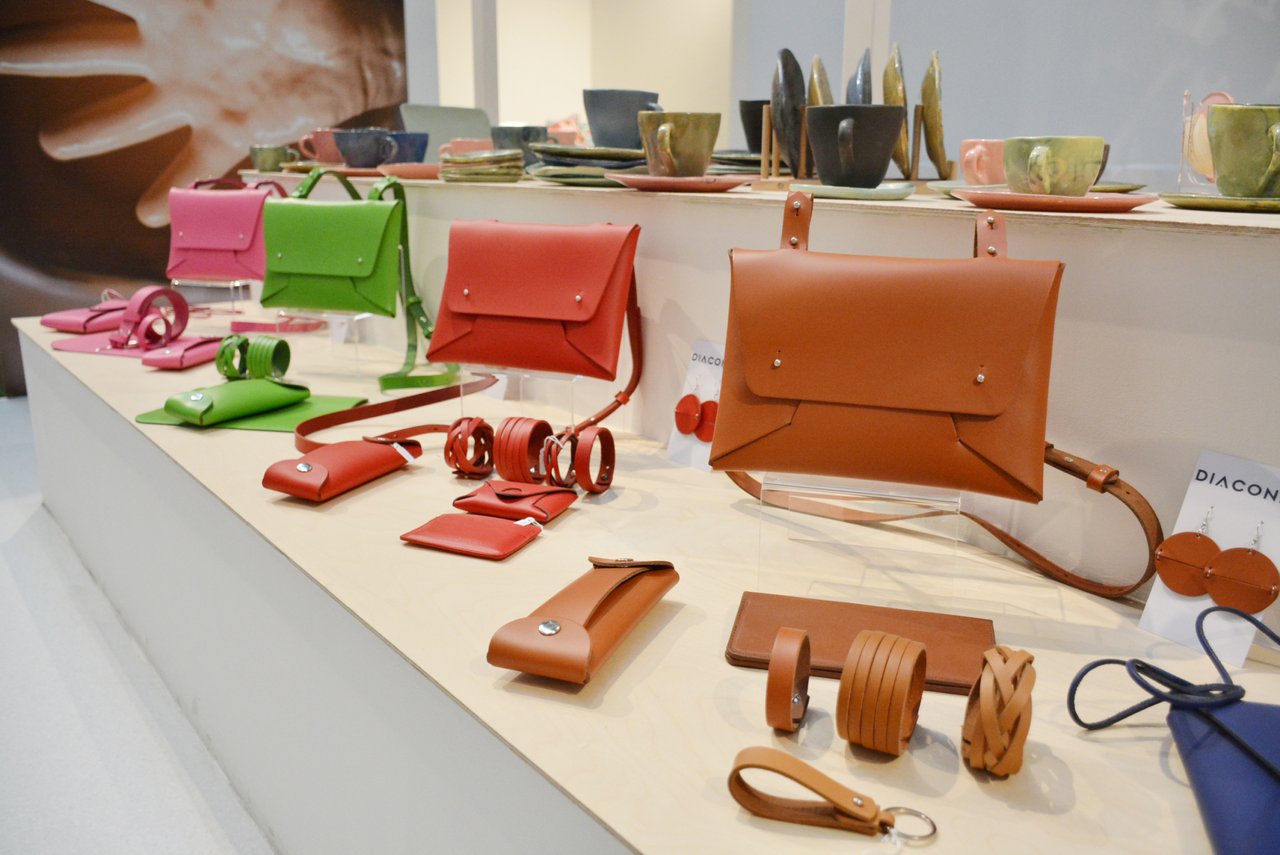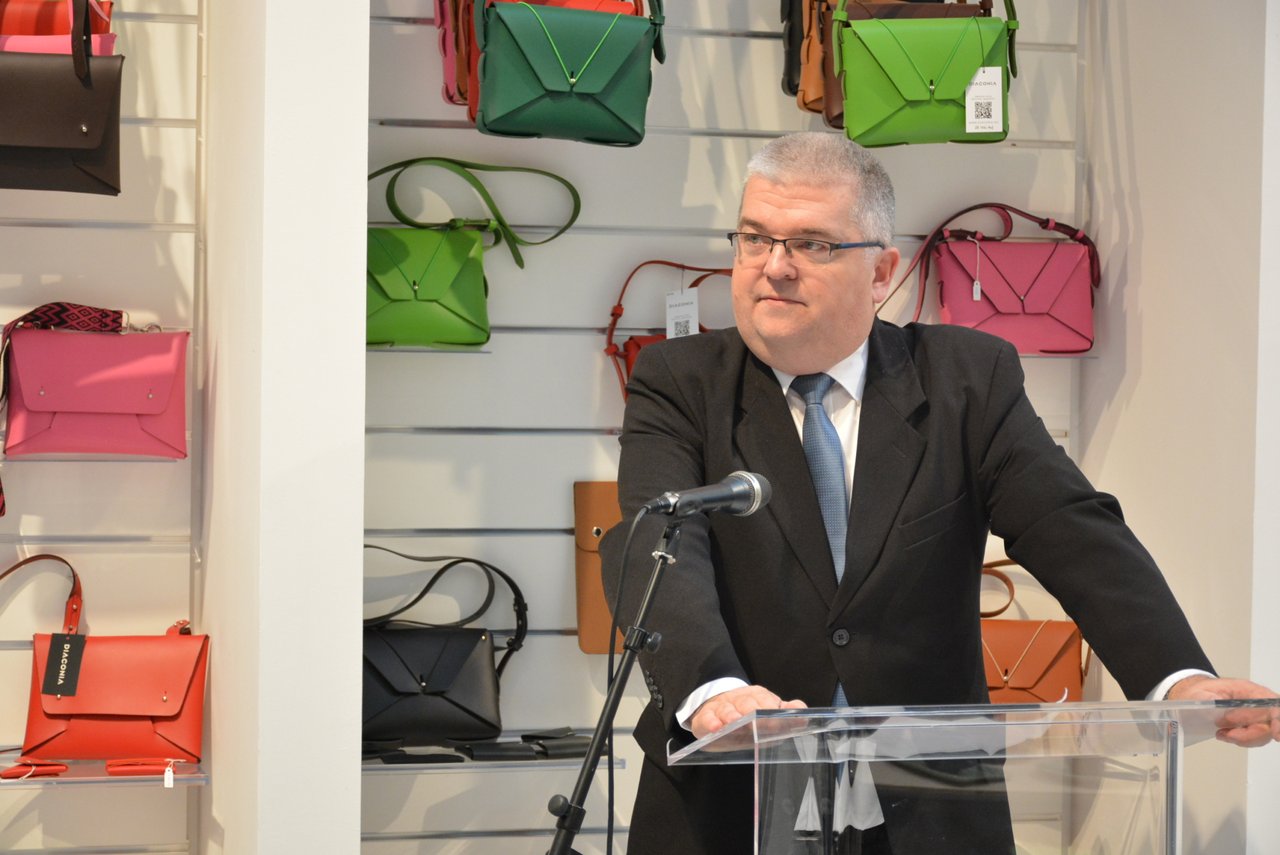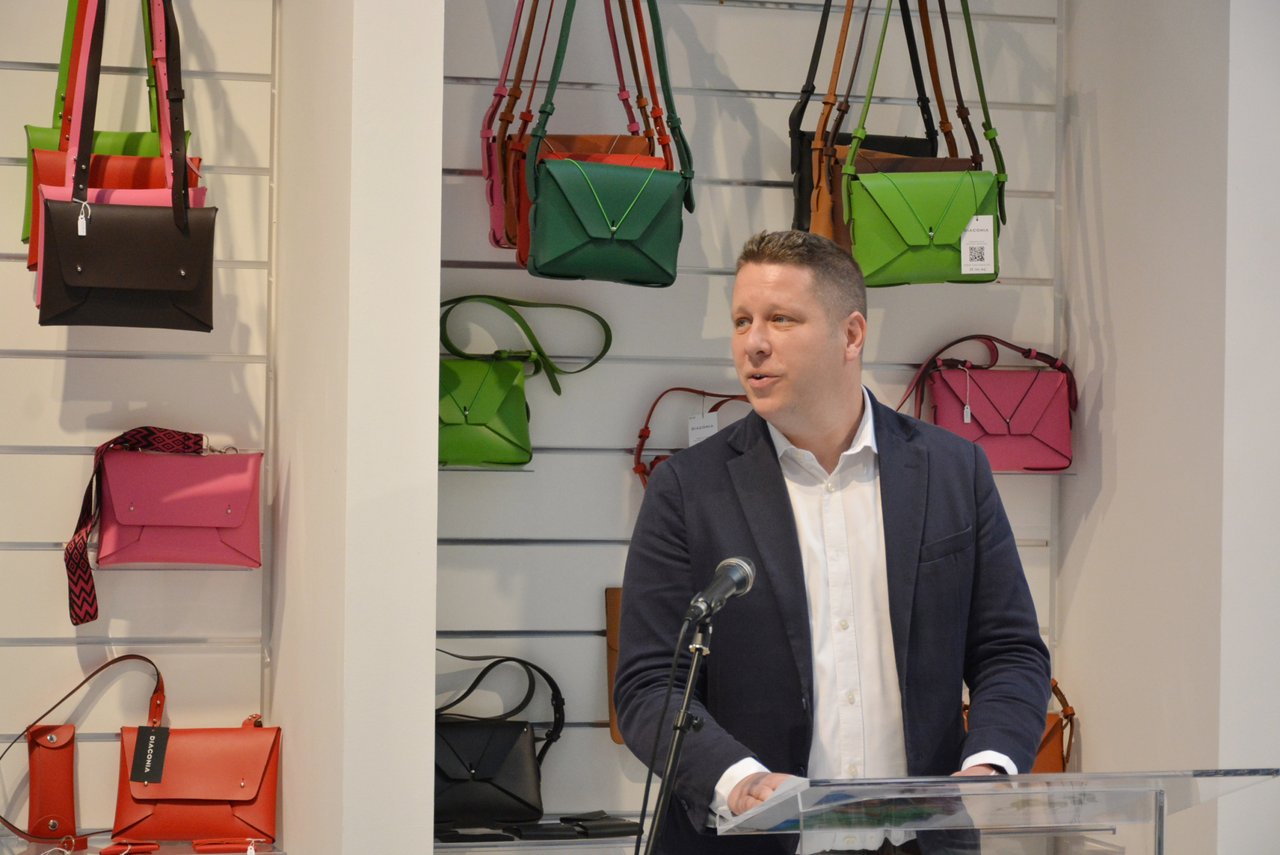On October 16th, the Hungarian Reformed Church Aid (HRCA) celebrated opening a new location for its “DIACONIA” brand at the Récsei Center in Budapest. The event included greetings from HRCA representatives, Dr. Károly Czibere, President of the Board of Trustees, and Márton Juhász, Managing Director of Jobbadni Nonprofit Ltd. With the establishment of this shop, HRCA marks a significant milestone in its economic development efforts associated with the Emerging Settlements Programme.

Photo: HRCA
In 2019, The Hungarian government initiated a programme to help the most economically disadvantaged settlements “catch up” and improve the living standards of 300,000 people. The government selected 300 settlements on the basis of several criteria, such as education levels, demographic ratio, household amenity preparedness, etc. The Hungarian government works in conjunction with organisations acting as implementing partners in the Emerging Settlements Programme. The DIACONIA brand is a social enterprise of the Jobbadni Non-profit Ltd., founded and owned by the HRCA, which acts as an implementing partner of the Emerging Settlements Programme.
The DIACONIA brand aims to enhance local economic development and support families from socially disadvantaged situations by providing jobs by establishing local leather manufacturing facilities in developing villages. Additionally, the mission of DIACONIA emphasises inclusion and equal opportunity for individuals with disabilities.
The DIACONIA brand includes a variety of products that appeal to a range of consumers, including purses, leather wallets, cardholders, belts, handbags, jewellery and more. The brand also has a mind for sustainability, ensuring that even the smallest piece of leather is used to its fullest potential before the scraps are recycled in further workshops.
Jobbadni Nonprofit Ltd. has been able to set up three craft workshops in Mezőladány and Zemplénagárd, both of which are part of the Emerging Settlements Programme, thus providing jobs for more and more local people in need. In early 2024, the first temporary pop-up shop was started at Paloma Artspace in Budapest. The October 16th grand opening marks the first full-stock store opening in the country’s capital. Additionally, the DIACONIA website launched in June, expanding the availability of products online.

Dr. Károly Czibere, President of the Board of Trustees, HRCA
Photo: HRCA
At the opening, Dr Károly Czibere praised the DIACONIA initiative, saying, “[it] is really about bringing closer those who we don't see in everyday life… behind every product, there are families, people from disadvantaged backgrounds, and these products help us to see their dignity, their ability to create value.” Empowering disadvantaged communities is an essential aspect of the initiative. In 2024, HRCA developed new plants in the settlement of Zemplénagárd; this settlement in Borsod-Abaúj-Zemplén County is also covered by the Emerging Settlements Programme. In the 2022 census, one in 10 local residents identified themselves as Roma, almost 80% of the population has no secondary school certificate, and half of the population has no more than primary school education. Márton Juhász stated that the importance of these factories is that “The products are made in catch-up municipalities of a few thousand people. It is in these municipalities… jobs are one of the greatest assets…that is why this business, this brand, is so important…because we have fulfilled our mission: we are not primarily helping with handouts, firewood or food, but with jobs…with jobs comes a predictable income, a supportive community that encourages learning, appreciation and value creation.”

Márton Juhász, Managing Director of Jobbadni Nonprofit Ltd.
Photo: HRCA
In addition to the HRCA representatives, two government representatives attended the opening ceremony, the State Secretary for Disabilities and the Prime Minister’s Commissioner for Social Inclusion. Both representatives praised the DIACONIA initiative and HRCA for developing projects prioritising economic development in disadvantaged settlements, including those with disabilities or reduced work capacities.